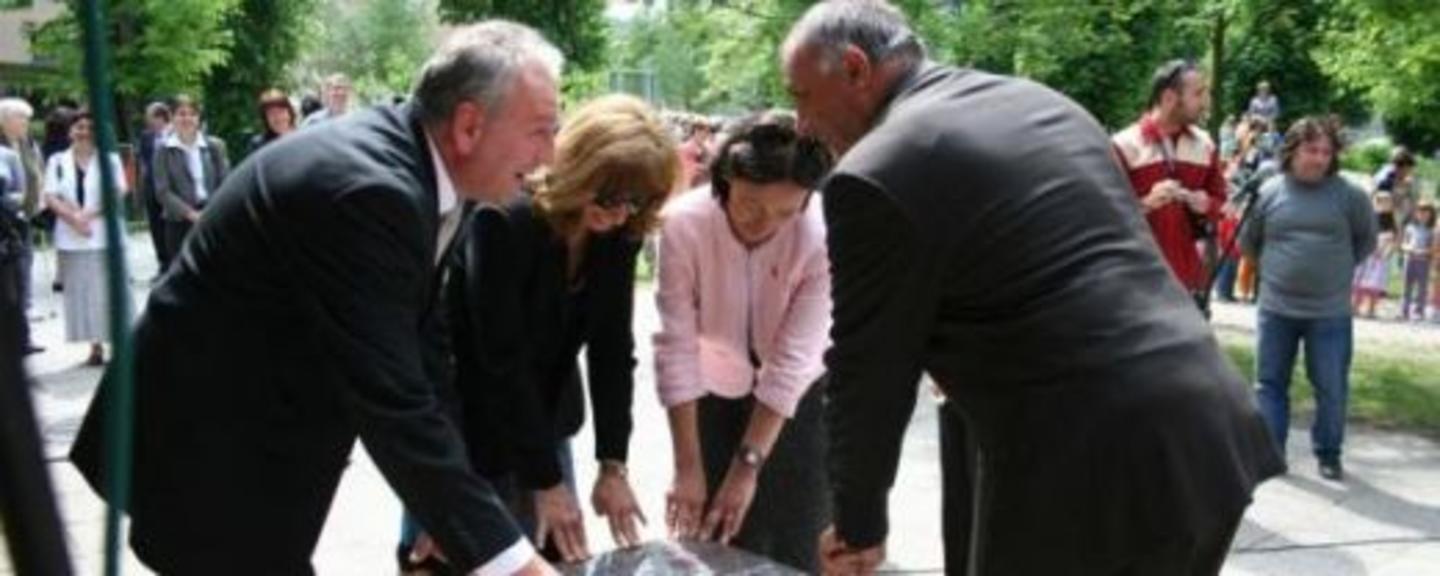The small Slovenian town of Idrija, crammed between mountains and the upper river basin of the Idrija river, is situated on top of one of the world's largest mercury mines. The mine has served as its economic cornerstone for some 500 years, but now the quicksilver beneath their feet has become a source of fear for Idrija's inhabitants. Young people are fleeing to avoid the effects of toxic pollution from the mine that has seen the risk of lung cancer for the 12,000 inhabitants rise to five times that of the rest of Slovenia.
Like many of the buildings in Idrija, the nursery school is built with mining remains from the vast array of tunnels beneath the city, and health concerns rose when high doses of radon radiation were discovered in the city’s nursery school.
A long and difficult battle followed to find support to build a new and radon-free nursery school, until the municipality was awarded a €1.3 million grant from Norway Grants in October 2006.
“For many years the kindergarten staff started the day with opening all the windows to let out the radon gas that had gathered during the night,” said Maja Majnik, responsible for public actives in the Idrija municipality. Earlier attempts to prevent the gas from seeping up through the floor had all been a failure, and the mental strain of sending the children to a radioactive kindergarten finally lead the municipality to evacuate the building. “We placed the children in the nearby school, where they don’t have much space but at least are safe.”
Since the town is situated in a narrow valley, the nursery school will be situated on its previous location. The close to €2 million project, in which 85 percent of the funding comes from Norway, includes the laying of a complete new foundation under the building to prevent the radioactive radon gas from posing any risk to the health of the children in Idrija.
News
16.10.2012
Norway contributes to Idrija’s effort to safeguard its children and teachers from cancerous pollution risk stemming from the Slovenian town’s 500-year quicksilver mining tradition.

SI0002 stone.jpg